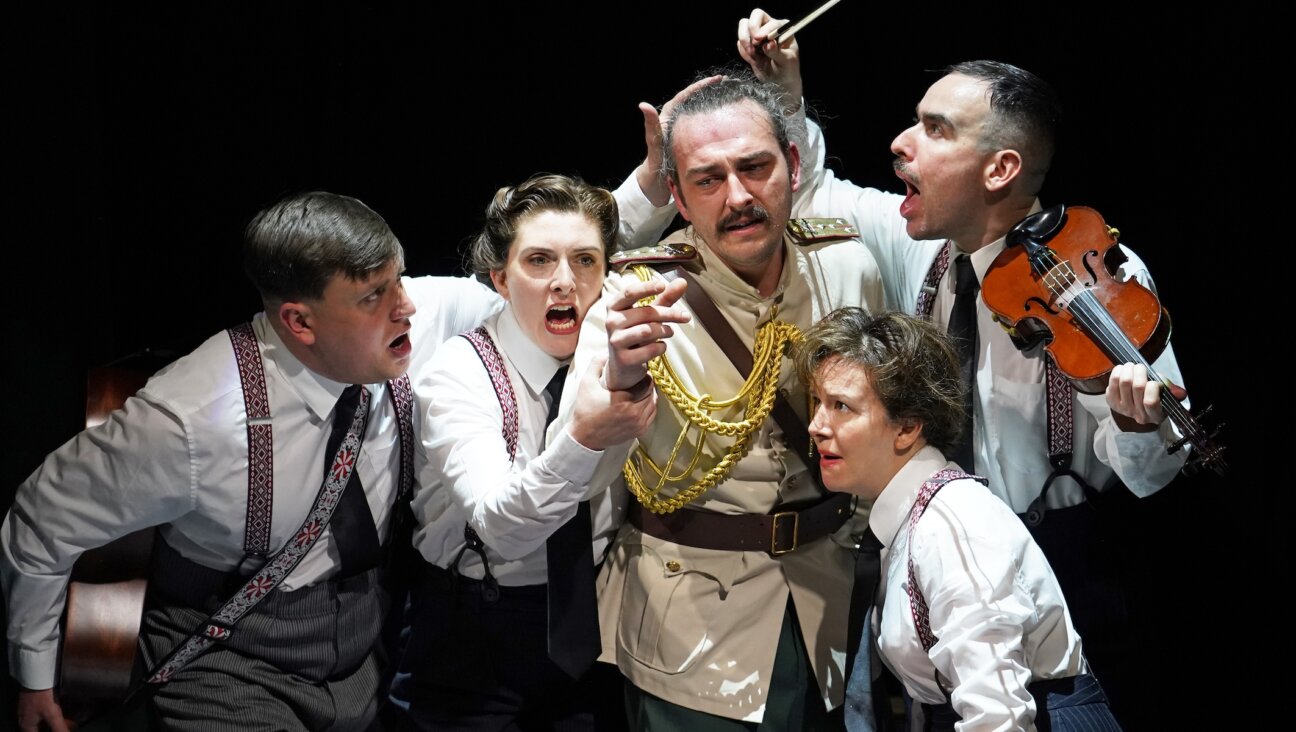Hanna Maron: Mother Courage of the Israeli Stage

The widely reported demise of the last Ziegfeld girl, Doris Eaton Travis, sent entertainment historians rushing to the dwindling list of surviving silent film actors, of whom the late Ms. Travis was one. Another name on that list ranks as a survivor on more than one account: the beloved Israeli actress Hanna Maron.
Born Hanna Meierzak in Berlin in 1923, Maron, whose name is sometimes also transliterated as “Meron”” or “Marron,” began acting as a toddler before talking pictures were in vogue. Her best remembered childhood role, however, is from a classic 1931 sound picture, Fritz Lang’s “M”, in which she assertively leads a child’s counting game before being murdered by Peter Lorre’s deranged character.
Soon after this ominous early role, Maron emigrated to Palestine with her mother. There, as Linda Ben-Zvi’s definitive “Theater in Israel” (University of Michigan Press) explains, Maron gravitated to The Ohel Theater, Habimah, and especially Tel Aviv’s Cameri Theater. Her stage roles included Hedda Gabler, Lady Bracknell, Shakespeare’s Rosalind, and the title role in “Hello, Dolly!” She probably would have also been Tevye’s wife Golde in the film “Fiddler on the Roof,” but in 1970, traveling to London to audition for the part, she lost a leg in a grenade attack when Arab terrorists hijacked her El-Al flight, landing in Munich.
Only a year later, Maron was back onstage in Israel in the title role of Seneca’s “Medea,” a play in which the character’s righteous fury, as opposed to the self-pitying Medeas of other versions of the story, must have been cathartic. In the following decades Maron alternated between tragedy, metaphysical modernity (a memorable Winnie in Beckett’s “Happy Days”) and TV sitcoms. She made a splash in director Amos Gitai’s 1998 angst-ridden film “Yom Yom” (“Day After Day”).
In 2008 Maron appeared in the Paul Schrader film “Adam Resurrected”, as an inmate of an Israeli psychiatric asylum for Holocaust survivors. The film, set in 1961, is adapted from a novel by Tel Aviv-born Yoram Kaniuk.
This past February, Maron recalled to one interviewer the grueling details of the 1970 terrorist attack, after which she found herself insisting in her childhood German to Munich surgeons preparing to amputate: “Ich bin Schauspielerin” (I’m an actress). Still, Maron’s life and legacy have been triumphant, transcending challenges no actress should have to endure.
Watch Hanna Maron singing on Israeli TV in 1977:

I hope you appreciated this article. Before you go, I’d like to ask you to please support the Forward’s award-winning, nonprofit journalism during this critical time.
Now more than ever, American Jews need independent news they can trust, with reporting driven by truth, not ideology. We serve you, not any ideological agenda.
At a time when other newsrooms are closing or cutting back, the Forward has removed its paywall and invested additional resources to report on the ground from Israel and around the U.S. on the impact of the war, rising antisemitism and the protests on college campuses.
Readers like you make it all possible. Support our work by becoming a Forward Member and connect with our journalism and your community.
Make a gift of any size and become a Forward member today. You’ll support our mission to tell the American Jewish story fully and fairly.
— Rachel Fishman Feddersen, Publisher and CEO
Join our mission to tell the Jewish story fully and fairly.

























